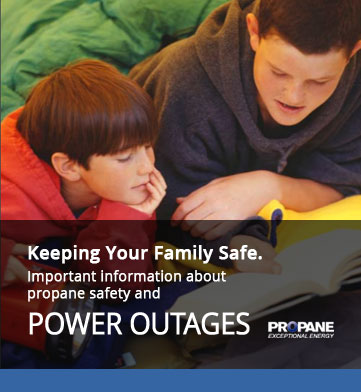PROPANE SAFETY
INFORMATION ABOUT PROPANE SAFETY – HURRICANES & SEVERE WEATHER. KEEPING YOU AND YOUR FAMILY SAFE
KEEPING YOUR FAMILY SAFE
Important Information about Propane Safety – Hurricanes & Severe Weather, Floods and Power Outages.
For Propane Safety – Hurricanes & Severe Weather, the Propane Education & Resources Council has prepared these downloadable brochures and safety tips to provide information you need to know about propane safety and how to keep your family safe during and after a hurricane, severe weather and power outages. By taking a few simple propane-related safety precautions and discussing them with your family, you can reduce the potential for property loss, personal injury, and even death.
With Hurricane Matthew barreling up the east coast of the United States, here are some important quick tips on what you should be aware of.
What to do When a Hurricane Approaches
When it comes to Propane Safety – Hurricanes & Severe Weather, if a hurricane threatens your safety, you may have to decide whether or not it is necessary to evacuate your home or farm. Listen to your local authorities, or television and radio stations, for instructions on the appropriate course of action to take. Whether it is determined that you should stay or leave, you should shut off your gas.
Damage caused by Hurricanes can be severe and clean-up may take days or weeks. If you have an outdoor propane grill, it may be a good idea to pick up a couple of extra BBQ grill propane tanks and store them, along with your grill, cooking utensils and food in a safe place. NEVER STORE A PROPANE TANK INDOORS.
What to do After a Hurricane
Follow these general safety rules Hurricanes can cause power outages, flooding, or other events requiring you to take additional safety measures. To help reduce the potential for injury or death, there are general safety rules that you should observe at all times:
- NEVER use outdoor propane appliances indoors or in enclosed areas. This could result in CO poisoning or death. These include outdoor portable heaters, barbecue grills, and portable generators. Only use appliances indoors that are designed and approved for indoor use.
- NEVER store or place a propane cylinder indoors or in an enclosed area such as a basement, garage, shed, or tent.
- NEVER use a gas oven or range-top burners to provide space heating.
- DO NOT UNDER ANY CIRCUMSTANCES TRY TO MODIFY OR REPAIR VALVES, REGULATORS, OR OTHER APPLIANCE PARTS.
- NEVER turn on a light switch, use any power source, or inspect your household appliances while standing in water. This can result in electrocution.
- DO inspect chimneys, flue pipes, and vent connectors for damage, blockage, or debris.
- DO inspect your propane appliances for water or other damage, if it is safe to do so. If the appliances have electric components and have been exposed to water, they can create a fire hazard.
Appliance or Equipment Damage
If you suspect any of your propane appliances, equipment, or vehicles have been under water or they have been damaged, or you have turned off your gas supply:
- DO schedule a time for a qualified service technician to perform a complete inspection of your propane system. The technician can also perform a leak test on the system and re-light your pilot lights.
- DO NOT use or operate appliances, equipment, or vehicles, or turn on the gas supply, until your system has been inspected by a qualified service technician.
Additional Resources: Propane Safety – Hurricanes & Severe Weather
These are only a few precautions to take if you find yourself in the path of a hurricane. The Propane Education and Resources Council has provided downloadable brochures on what to do in various emergency situations. Please download them now (links at right), and study them carefully.



